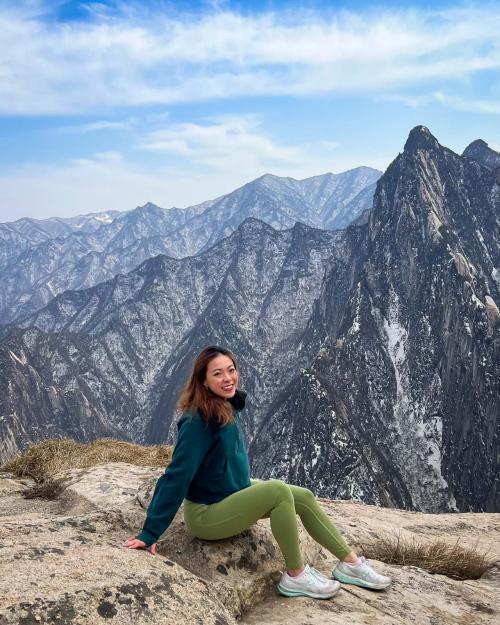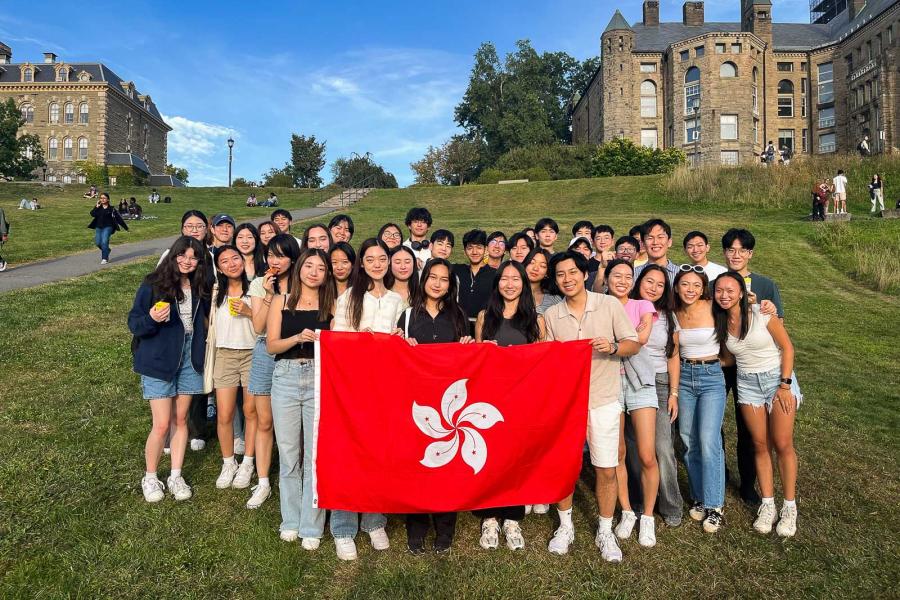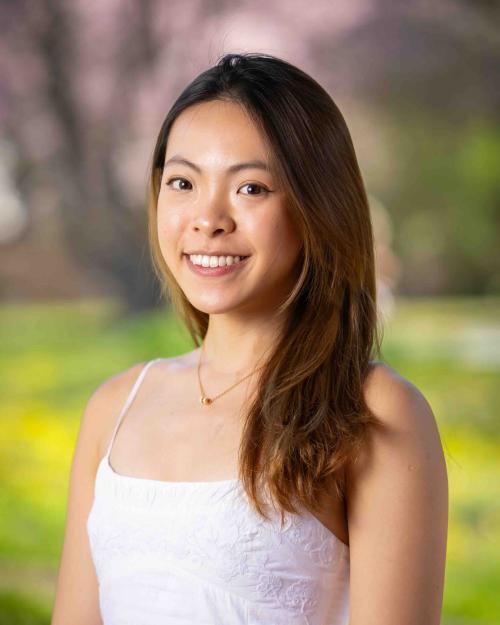Feifei Hung
China and Asia Pacific Studies & Government
Hong Kong SAR, Taipei
What was your favorite class and why?

Taking CAPS 2132, Law and Society of Early Modern and Modern China, taught by Professor Yue Du in my freshman fall semester was the starting point of my intellectual curiosity in the field of China research. The class examined the external and domestic forces that influenced the interpretation and institutionalization of "rule of law" in modern China, and how the societal characteristics interacted with judicial authorities in forming and implementing the law. Specifically, under Prof. Du's strong guidance in my 20-page final paper on the existence of separation of powers in the Hong Kong Basic Law, I discovered my deep passion for research and understanding the building blocks and complexity of modern day China. I declared my major in China & Asia Pacific Studies immediately after the class. Besides, the encouragement and support Prof. Du gave me to voice my opinions in class discussions was highly invaluable. As the only freshman in a seminar class full of seniors, I initially felt very out of place, unqualified and intimidated in the classroom. But eventually, I came to really enjoy the opportunity to rigorously engage in abstract ideas, difficult discussions and having my ideas challenged or challenging my peers' views constructively. I brought this courage to speak up and ask questions with me in the rest of my Cornell education, which I believe to has made a transformative difference in the way I learn and think.

What is your main extracurricular activity and why is it important to you?
The supportive community at the Cornell Hong Kong Student Association was like a home away from home for me. Upon arriving in the U.S. and Cornell my freshman year, I experienced huge culture shock and a feeling of not being able to fit in. Upon joining the organization as a new student representative in my freshman fall, I was very lucky to find a group of genuine upperclassmen friends who really helped me find a sense of belonging in Cornell and cure my homesickness by speaking Cantonese and eating snacks from home regularly. As president of the organization in my sophomore year, I built an even stronger community by connecting with more Hong Kong Americans and organizing more large scale events on campus. I am very thankful to have met my closest friends at Cornell in the organization.
What have you accomplished as a Cornell student that you are most proud of?

Completing my senior honors thesis with the government department on the topic of "Taiwan's Semiconductor Industry and the Politics of National Security," under the supervision of Professor Thomas Pepinsky, was definitely my proudest achievement at Cornell. This thesis is a distilled product of my academic and professional development journey during my undergraduate years at Cornell. It would not have been possible without the generous support and guidance of many mentors, professors and friends.
It started with my sophomore summer internship at the Cornell Emerging Markets Institute, as a Laidlaw Scholar and under the mentorship of Professor Lourdes Casanova, that introduced me to the intersection of geopolitics and the global semiconductor supply chain. Through joining the Cornell in Washington program in my junior spring, I was exposed to the historical and contemporary U.S.-China-Taiwan relations from the U.S. perspective and discovered my passion for policy analysis from my internship in D.C. My study abroad semester in Beijing with the China & Asia Pacific Studies Program further exposed me to the PRC's national security agenda and challenges ahead to resolve Cross-Strait tensions.
As a half-Taiwanese person, I have always struggled to find domestic perspectives on critical national security issues presented in the field of U.S.-China relations. While the international community is increasingly more aware of the dominance of Taiwan’s semiconductor industry, which is often discussed in relation to how this advantage enables it to enhance its national security through the Silicon Shield theory, I was curious to understand the views of local Taiwanese policymakers and ordinary citizens. The writing of this thesis was not only an opportunity to conduct an in-depth analysis to understand the significance of Taiwan’s semiconductor industry, it was also a chance for me to develop a stronger sense of identity and belonging to my roots.
How have your beliefs or perspectives changed since you first arrived at Cornell?
Coming from Hong Kong, I brought a prefixed perception toward China, shaped by a confined set of norms and beliefs. However, moving away from that environment, my perspectives have widened by breadth and depth through my education at Cornell. My courses have exposed me to the dynamic development of China and conceptualized its development from a macro viewpoint. Through generous department funding from the CAPS and government departments, I was also able to attend U.S.-China-related conferences across the country and in Asia to engage scholars, professionals and rising leaders in the field that sharpen my ability to make more informed and analytical opinions. My study abroad semester at the Peking University in Beijing with the CAPS department was the most life-changing experience that prompted me to reflect on my prejudice and stereotypes. Travelling to 15 cities of different tiers in China, working at a U.S.-headquartered glass company, and interacting with local students from very different parts of China exposed me to the endless nuances that I was not aware of before I formulated an uneducated perspective. These experiences have taught me to be humble, open-minded and not complacent as a lifelong learner.
Who or what influenced your Cornell education the most?
My father has been the most instrumental figure influencing my Cornell education trajectory. He has been my mentor academically and professionally, as well as in life. Growing up listening to his political commentaries in a family with humanities backgrounds, it molded my interest in understanding how nations function and interact with one another, leading to my decision to double major in government and China & Asia Pacific studies. More importantly, his unwavering support for my pursuits emotionally, always acting as a rock to me as I endure adversities, truly made me believe in myself and motivated me to chase my dreams. I still vividly remember the time he stayed up till 4 a.m. (Taipei time) to witness the moment I submitted my honors thesis and cheer for my accomplishment. I am immensely grateful for his unconditional love, guidance and support, and hope to continue to make him proud in the future.
Where do you dream to be in 10 years?
In 10 years, I hope to still be working towards the vision of crafting a long-term peaceful resolution between China and Taiwan, and increasing the representation of Taiwan in the international community. While I don't have a clear idea of what role I hope to play in this dialogue, I am excited to continue pursuing different experiences around the world and figure out my role along the way. I also hope to still carry the curiosity, drive and grit I cultivated at Cornell to approach opportunities and challenges in life.
Every year, our faculty nominate graduating Arts & Sciences students to be featured as part of our Extraordinary Journeys series.Read more about the Class of 2025.




